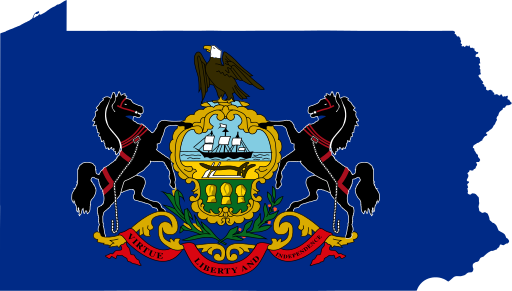At the primary election on May 18, 2021, Pennsylvania voters will decide four ballot measures alongside legislative special elections, municipal and school district elections, and judicial elections. It is the most measures on a Pennsylvania ballot since 1981. During the last two decades, the average number of measures on the ballot in Pennsylvania per year was less than one. Additional measures could appear on the November general election ballot this year. Four constitutional amendments are pending in the legislature.
Question 1 and Question 2 on the May ballot address the governor’s emergency powers, which have been a point of conflict between the Republican-controlled Legislature and Democratic Gov. Tom Wolf during the coronavirus pandemic. Question 1 would allow the Pennsylvania General Assembly to pass a resolution, which would not require the governor’s signature, to extend or terminate the governor’s emergency declaration. Question 2 would limit the governor’s declaration to 21 days unless the legislature votes on a concurrent resolution to extend the order.
In June 2020, the General Assembly passed a concurrent resolution to terminate Gov. Tom Wolf’s (D) coronavirus emergency declaration. On July 1, however, the Pennsylvania Supreme Court ruled that the governor could veto the concurrent resolution. On July 14, Gov. Wolf vetoed the resolution, which would have required a legislative two-thirds vote to overturn.
Question 3 would add the following section to the Pennsylvania Constitution’s Declaration of Rights: “Equality of rights under the law shall not be denied or abridged in the Commonwealth of Pennsylvania because of the race or ethnicity of the individual.” The state Senate voted to add Question 3 to the same bill that referred Question 1 and Question 2 to the ballot.
Unlike the other three ballot measures, Question 4 changes state statute, not the state constitution. It would expand the state’s loan program for volunteer fire companies and ambulance services to also include municipal fire companies and EMS services. The loan program is funded by general obligation bonds. Question 4 would not issue new bonds. Voters have approved a total of $100 million in general obligation bonds between 1975 and 2002 to fund the loan program. Loans can be used for establishing or modernizing facilities, equipment, and vehicles.
Between 1995 and 2020, the state legislature referred 10 constitutional amendments to the ballot. All 10 of the constitutional amendments were approved. As of 2020, voters last rejected a constitutional amendment in 1981.
May 3 is the deadline to register to vote in the election. May 11 is the last day to request a mail-in ballot.
Additional Reading:


